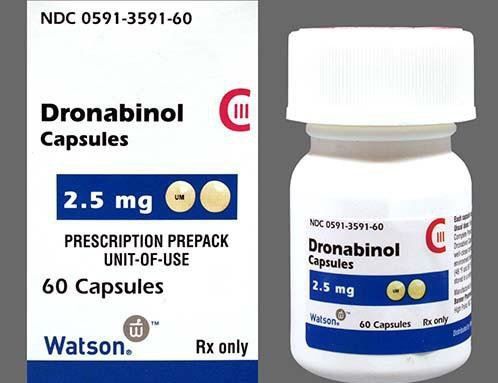This is an automatically translated article.
Cardiovascular health is important for the entire body. Here are ways to keep your heart healthy and improve your quality of life.1. Eat less bad fat to improve your heart
Bad fats are saturated fats, often hidden in some tempting foods like burgers, butter, and ice cream. Trans fats are commonly found in cakes, chips, and baked goods. Trans fats increase the level of bad cholesterol (LDL) in the blood. In the long term, it can clog arteries and increase the risk of heart disease.2. Eating good fats is the way to a healthy heart
Not all fats are bad for the body, some fats are good for the cardiovascular system. So, what to do for a healthy heart is to ensure that the diet always has unsaturated fats. Unsaturated fats are found in nuts, flaxseeds, avocados, and vegetable oils. Salmon, mackerel and tuna, which are high in omega 3 fatty acids, reduce the risk of heart disease.
3. Playing sports improves heart health
Playing tennis, cycling, walking also improves heart health. Exercises that make your heart beat faster will reduce heart risks such as high blood pressure and cholesterol. 150 minutes of moderate exercise or 75 minutes of vigorous exercise per week is the way to a healthy heart. Exercises can be broken down into 10 or 15 minute lengths. Add muscle-strengthening exercises twice a week.
4. Add more fruits and vegetables Colorful foods are rich in minerals and nutrients that help keep blood pressure stable, improve heart health. Incorporate dark green leafy vegetables such as spinach, broccoli, fruits, and red, yellow and orange vegetables.
5. Cut down on sugar Soft drinks, candies and desserts contain a lot of sugar that makes you gain weight. Being overweight is not good for heart health. The American Heart Association recommends less than 6 teaspoons of sugar in women's diets, and 9 teaspoons of sugar in men's diets.

Chơi thể thao là cách để tim khỏe mạnh
6. Limit salt
When eating foods that contain salt such as salty crackers or chips, the body balances out excess sodium by retaining plenty of water. Staying hydrated increases blood volume, making the heart work harder to push blood around the body. Using too much salt can lead to heart failure.
7. Quitting is good for the cardiovascular system Smoking has many harmful effects and is not good for the cardiovascular system. The chemicals in cigarettes narrow the blood vessels, making the heart work harder to pump blood to the organs in the body. Stop smoking and stay away from places where there is smoke.
8. Monitor your body's indicators High blood pressure, bad LDL cholesterol and high blood sugar increase the risk of heart failure. Periodic check-ups help in early detection and treatment. It is possible to monitor blood pressure and blood sugar at home with specialized meters.
9. Relieve stress Stress increases blood pressure and pressure on the walls of blood vessels. De-stressing with alcohol, junk food or tobacco increases the risk of heart disease. Relieve stress by having health benefits such as going for a walk, doing yoga, listening to relaxing music. If the stress is overwhelming, you need to see a therapist or counselor for help.
10. Find out your family history Has anyone in your family had a heart attack? Genes, lifestyle, and lifestyle play a role in heart problems. If it's lifestyle related, you can make changes with your diet, exercise habits, and other healthy lifestyles.

Bổ sung nhiều trái cây và rau để cải thiện tim mạch
11. Personal health management
Diabetes, blood pressure, cholesterol increase the risk of blood vessel blockage, leading to heart problems. Check your general health regularly to detect heart problems and treat them early. Incorporate heart-healthy lifestyle changes to manage these and other health problems.
12. Stay at a healthy weight People who are overweight or obese are more at risk for heart disease such as high LDL cholesterol, blood pressure, and blood sugar. Maintain a healthy weight with a healthy body mass index (BMI) between 18.5 and 24.9 with diet and exercise.
13. Limit alcohol A glass of red wine daily is good for the heart. Drinking too much can increase blood pressure, the amount of fat in the blood that causes heart failure. Alcohol can be consumed in moderation, no more than 1 drink per day for women and 2 drinks for men.
14. Sleep apnea Sleep apnea is a blockage in your airways that stops you breathing continuously during the night, causing snoring. Sleep apnea causes high blood pressure, irregular heartbeat, heart failure, and stroke. When you have snoring while sleeping, you should visit a specialist for timely treatment.
Together with cardiovascular health care for the community, Vinmec has deployed many packages of examination, diagnosis and treatment of cardiovascular diseases such as standard cardiovascular health check-up package, coronary artery disease examination and screening package, increased blood pressure, heart failure... for different risk groups. Besides, Vinmec is fully equipped with modern equipment such as high standard testing system, electrocardiogram machine, echocardiogram, stress electrocardiogram, Aquillion 640 slice CT scanner, technical angiography machine modern digital number (DSA)... makes examination and treatment easier. Especially, the medical team with many years of experience in diagnosing and treating cardiovascular diseases in general and coronary artery disease in particular is the decisive factor in bringing satisfaction to all customers. .
Please dial HOTLINE for more information or register for an appointment HERE. Download MyVinmec app to make appointments faster and to manage your bookings easily.
Reference source: webmd.com












